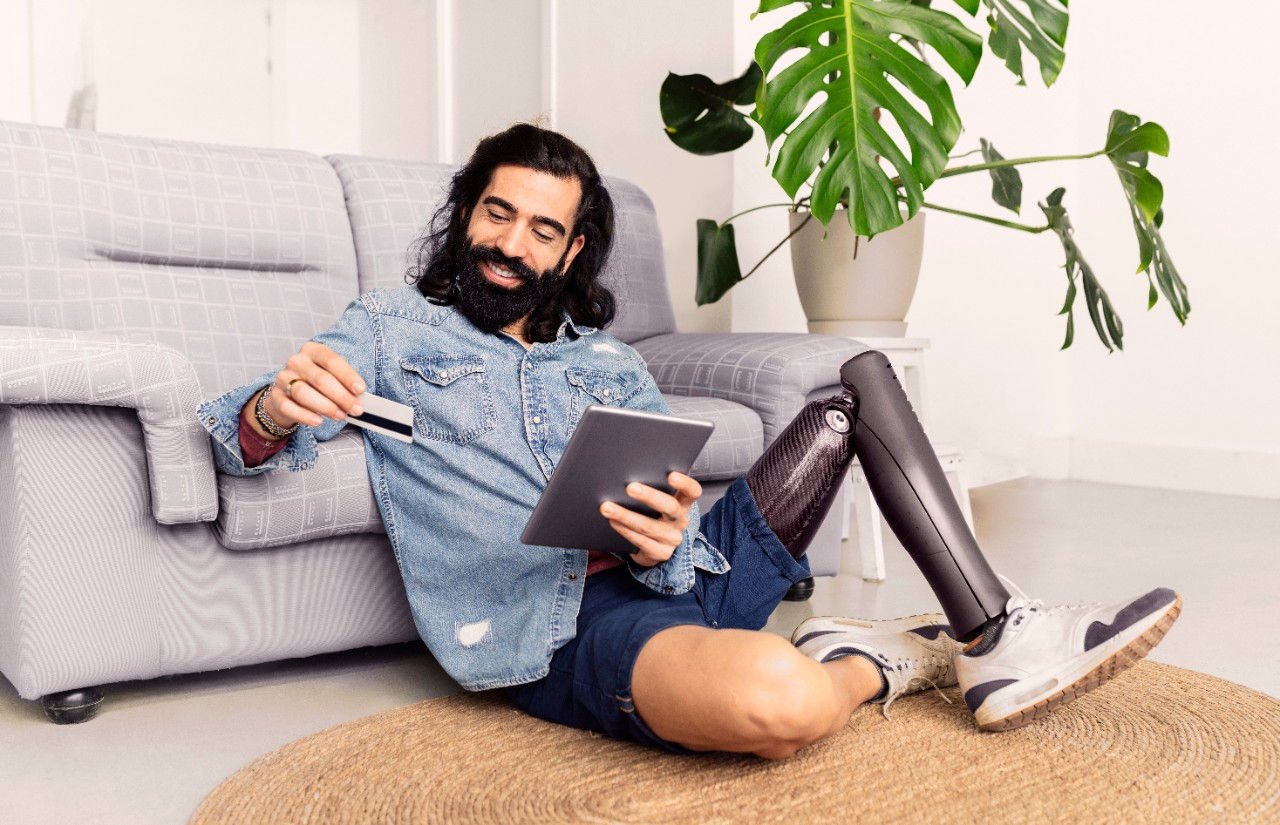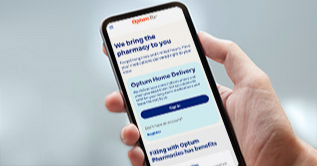
Victoria Reese
Media professional, CEO of We Are ILL
I knew I wasn’t the only Black woman diagnosed with MS. But where was everybody else?
To find out, I started getting involved in the MS community. I participated in MS walks — where there’d be a sea of white people. I posted on social media about my diagnosis. I searched social media for a community. But all the people who were posting were white.
And organizations' websites didn't have any flair, flavor, graphics or images that I and other Black people could relate to.
Overall, I was just trying to see myself, and that’s what was missing. But it was also a reflection. Black people don’t innately seek support or resources. And there’s the other side of it, too: just erasing or not including Black people in the narrative.

Here is a tweet that Nas posted to share the work of my nonprofit organization, We Are ILL.
Reaching others: Community resources for Black people
So it was up to me to create a community. If Black people with MS are already underserved, we may need to go to them. Maybe they don’t have transportation to get to Long Beach or Pasadena for an MS walk. They may not have even told anybody that they have MS because of the stigma.
There was a gap there, and I needed to do something about it. I thought, I can at least start uniting people who are Black, especially women.
In 2017, I started #WeAreILLmatic, a social media campaign that played off Nas’s 1994 debut album “Illmatic.”
I wanted to reach Black people. You may not know his songs, but you know Nas. What he meant by “Ill” was not “sick” at all but “dope.” My messaging was (and is), “We’re dope, too.” We are cute, we are thriving, we are entrepreneurs, etc. Don’t forget about us.
And once you do see us, don’t put us in a box, because we’re not all the same.
The mission of We Are ILL
The social media campaign evolved into We Are ILL, a nonprofit organization with an essential mission: To support, educate and unite Black women who have been diagnosed with multiple sclerosis and to improve health equity for Black women living with MS.
Here’s some of what we do to carry out our mission:
Support
We started a Facebook support group to create a private space where women with MS could talk about their experiences and see one another.
At the beginning, everyone talked about feeling alone and not meeting anyone else who had MS. But then they also were able to ask each other questions about experiences, medications or doctor appointments. They know they aren’t alone.
Education and health literacy
It takes a while to get educated. We’re doing a lot of programming, whether it’s educating people about pharma companies or giving more information about disease-modifying therapy (DMT) or how to talk to a neurologist.
We also help with health literacy. Like, what the acronyms mean and a patient's rights. Health literacy is for everyone, but if you are from an underserved community, it can be overwhelming.
Some people feel they need permission to get a second opinion. Or we hear things like, “They said they won’t do this for me.” Well, did you ask them to record that on your medical report so that it’s documented? A lot of people don’t know they have permission to do that.
If you only go to the doctor with a common cold, you’re not coming into your MS team with the confidence you need to advocate for yourself.
Unity
Unity is a game-changer because we didn’t know we were so strong in numbers. Now, we’re able to support science by increasing the participation of Black women in clinical trials.
There’s a lot of mistrust. But we can talk about it this way: If you as a patient want to see studies with Black people with MS, you’ve got to participate.
That’s why the connection with Nas is so important. Our first video used the same colors, the same font, the same look as his, and people got it. It was like, “Oh, this is different.”
The very first day I dropped that video, Nas reposted it! People who had MS or a mom with MS saw it and followed us. I chose this angle to cut through the mess.
People could identify themselves and hold their head up high. We’re not a member-based nonprofit, but people are like, “I’m part of We Are ILL.” They found a community. A home.
Examples of health inequities
Health inequities are well documented in areas like pregnancy and maternal health. Black women are 3 times more likely to die from a pregnancy-related cause than white women.1 Three times!
Contributing to that risk are things like differences in health care quality, underlying chronic conditions, structural racism and bias.2
With MS, add in the fact that it’s a snowflake disease. No two people are the same, and you don’t know where it’s going to go. It could stay mild forever, or it could spiral very quickly. It’s also an invisible illness, and that creates barriers for anybody.
Other burdens we carry
On top of that, if you are Black, and a Black woman, you’ve got other burdens to carry.
You may have access challenges if you live in an underserved community. Maybe financially, you don’t have a car, so you can’t get to your appointment. Or maybe you live in a rural area, and you can’t go because it’s 2 hours away.
Or you’re a single Black mother — I was raised by one — who has to work. Who may not have paid time off. What does that look like for you when you get sick and are the primary caretaker with kids and can’t get out of bed because of extreme fatigue?
And then, again, you have health literacy — not knowing what things mean. That can be a reflection of education level or that your school district might not have been top tier. That creates this residual effect of just lacking knowledge and vocabulary and how to handle yourself at the doctor.
Do you have a laptop? Do you have Wi-Fi? Can you do research on who’s the best doctor in your area?
A lot of Black women in the U.S. are head of household, and many have an unhealthy complex about getting it all done. I gotta take care of everything. I can’t take care of myself because I’m taking care of everyone else.
It’s heavy.
The biases in health care
And then your experience at the doctor — the fear — it goes beyond childbirth. Are you being talked down to? Ignored? Dismissed as “stressed about work/relationship/marriage/etc.”?
These biases happen because doctors are human, too. And until you have a chronic condition, you’re not going to the doctor a lot, so the rapport isn’t always good.
You become what I refer to as “a professional patient” when you have a chronic condition. We Are ILL is here to educate, support and unite Black women throughout their journey.
But we can’t do it alone. Nor should we. Optum and other health care companies have a role to play too, to help overcome these biases.
My multiple sclerosis story
- Read part 1 of my journey, My earthquake: Getting diagnosed with multiple sclerosis
- Read part 2 of my journey, Facing MS as a Black woman
- Read part 4 of my journey, Advancing MS research and representation
References
- Centers for Disease Control and Prevention. Working Together to Reduce Black Maternal Mortality. Last reviewed April 6, 2022. Accessed Jan. 11, 2023.
- Ibid



